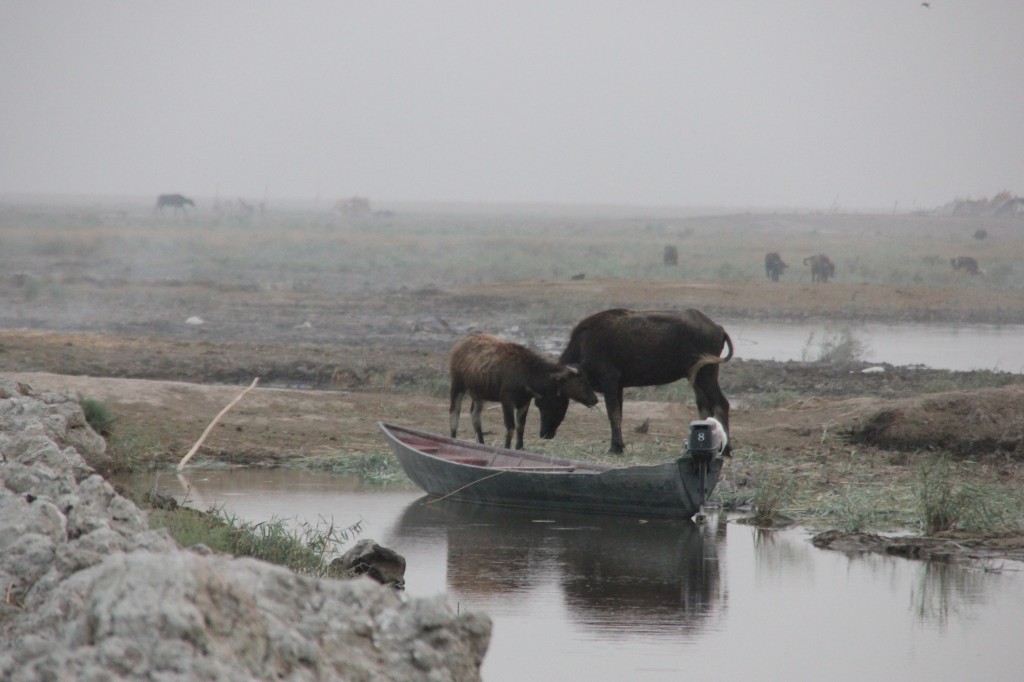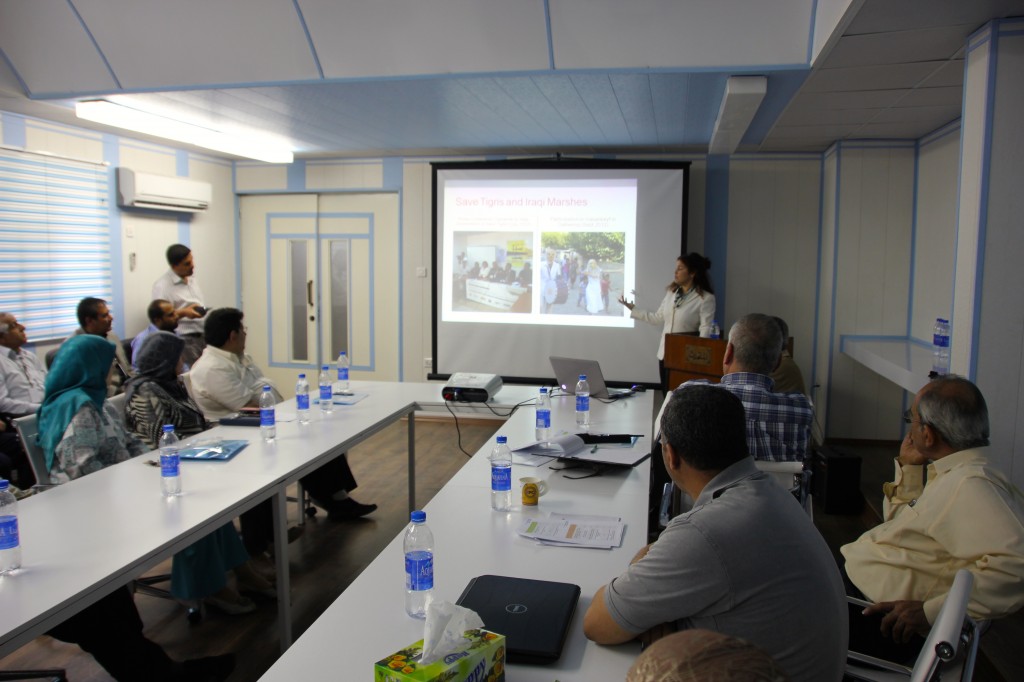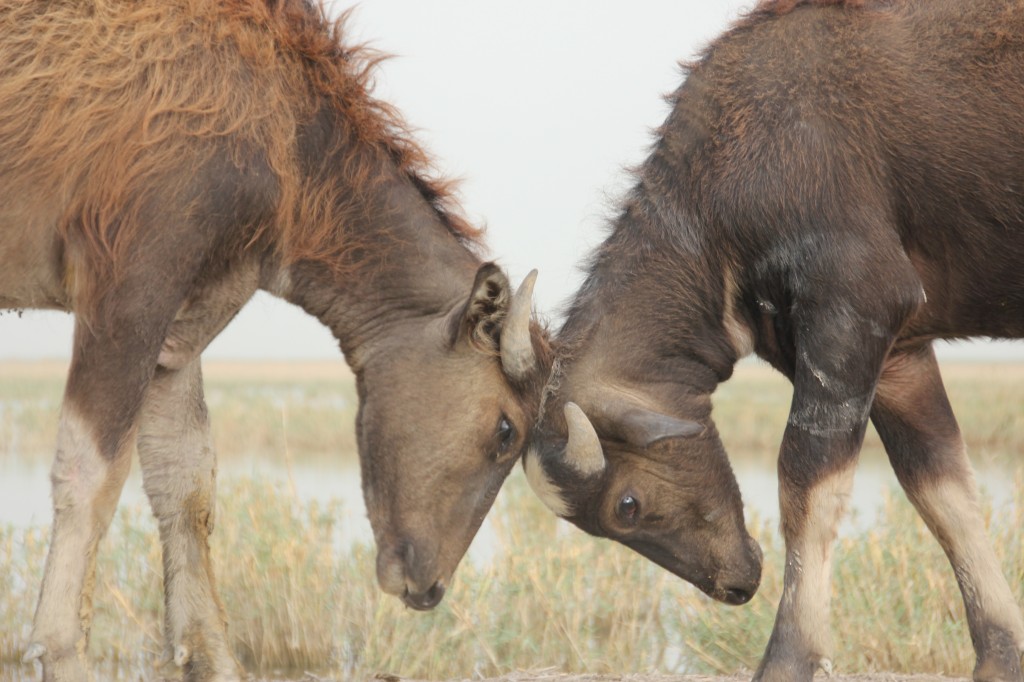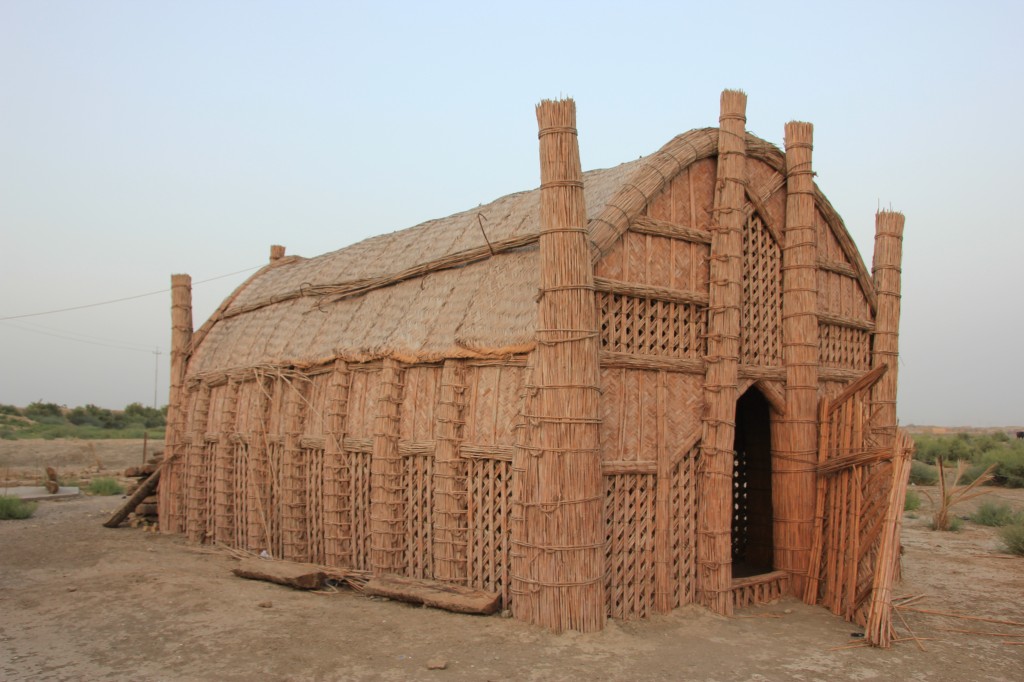Trying to deconstruct and understand the Syrian conflict is a
challenging task. Three months ago I was in Domiz refugee camp, in the northern
Iraqi-Kurdistan province of Duhok. Mostly, Syrian Kurds, now the number on the
camp is on the 62,000. By January 15th the number had gone to 72,480
and by February 20th, to 96,270. You can check the UNHCR-Iraq. At
that time, I read several news articles, reports and had discussions with
colleagues trying to understand the complexity of the conflict, its
geo-politics and the mosaic of stakeholders. Now, as I go on my daily work in
Iraq, I’m also trying to follow the Syrian crisis, especially, as the number of
people crossing surge, and I can notice in restaurants and coffee places the
increased number of Syrian workers here in Kurdistan.
The outcome of the Syrian conflict, as complicated and polarized
as it is, will re-define the balance of power in the Middle East. At its best
it will bring a free, pluralistic and democratic Syria; at its worst it could
spill into violence for its neighbors; Iraq, Lebanon and even Iran.
History
Glen Robinson’s explains a bit of Syria’s history in his article Syria’s Long Civil War. Syrian borders were mainly based on the interest of colonial powers; therefore there is no real Syrian national identity. Allegiance is mostly based on ethnic or religious grounds.
Glen Robinson’s explains a bit of Syria’s history in his article Syria’s Long Civil War. Syrian borders were mainly based on the interest of colonial powers; therefore there is no real Syrian national identity. Allegiance is mostly based on ethnic or religious grounds.
Historically, Alawites were amongst the poorest Syrians and
considered a heretical sect. French colonialism helped Alawites to go up. They
were active military men and dominated Syrian politics in the beginning of the
1960’s.
The Players
The Syrian regime has a 25% of the population’s backing
–Alawites and minorities. On one hand, the Alawite narrative- kill or be
killed; Christians on the other hand fear a relegation to second class status
under an islamist regime and Kurds firmly believe that hardline islamists will
not be supportive of Kurdish rights.
The players on the armed conflict: Pro-Assad Syrian Army,
Anti-Assad Free Syrian Army, with Kurdish PYD playing a prominent front in the
Kurdish areas. A wide variety of groups or coalitions trying to unite
opposition to get international recognition and international support in
forming a transitional government once the regime is ousted. Various political
groups, exile dissidents, academics and local coordination committees, inside
and outside opposition figures form these coalitions.
The Sectarian Divide
The
relevance of sectarian sentiment and class divisions has become increasingly
apparent as the uprising intensified.
- Sunni Arab-the revolution started in rural Sunni dominated areas.
- Kurdish-had been kept away in the beginning because of the regime’s strategy to appease the Kurds by granting them citizenship) but have recently seen an increase in the fighting.
- Alawite-in the areas of Latakia and Tartous strongly support the government
- Druze-in Sweida governorate also support the regime.
- Christians-among the major cities mostly support the regime, fearing an Islamist take over or a civil war Iraq-style.
The Christians are caught in the crossfire; some of them
supporting the regime, because it provides a safe, secular option; some
supporting the revolution, and the end of the dictatorship.
I met Father Paolo, a Jesuit priest who lived in Syria for 30 years; he
is an ardent advocate for social justice and the protection of the Syrian
people. He was exiled by the regime for his support of the revolution. He says the problem is that “There is Alawites
and Christians in the revolution, together with Kurdish and Druze and all kinds
of Sunnites. The Sunnite is not one kind. There
are Sufi people, Muslim Brothers, moderate people, liberals, Sunni Muslims,
Salafite, extreme Salafism and Qaeda people. All this is too much to be called
just Sunnis”.
There are two sides of the same coin: the revolution all over
the country on one side and on the other side, the civil war in the west, where
the Sunni villages and quarters in Homs, for example are contrasted by the
villages or part of the town that are mainly Alawites, with other minorities.
There is revolution all over the country, repressed by Assad’s regime violence,
and the civil war, ongoing in the west. The risk is also a possibility of civil
war for the Kurdish area; so we are talking about big risks.
 |
| Source: Syria Deeply |
The Syrian Opposition
National Coalition for Opposition Forces and the Syrian
Revolution
According to Syria Deeply, the National
Coalition for Opposition Forces and the Syrian Revolution, or National Coalition, includes representatives from
local opposition groups in Syria, the Kurdish National Council, and individuals
who have a long history opposing the regime. The Syrian National Council, which
was dismissed as ineffective by the Obama administration, was able to win
roughly one-third of the coalition’s seats.
Moaz Al-Khatib, a moderate Sunni preacher from Damascus was
elected president of the coalition and two longtime dissidents Riad Seif
and Souheir Atassi were named vice presidents. The coalition quickly won
recognition as the sole representative of the Syrian people from France, the
U.K., Spain, Italy, Turkey and Gulf Arab countries, which allowed the nascent
group to place ambassadors there, a move that diminishes the Assad
regime’s status as a sovereign entity.
As the most prominent political opposition calling for the end
of the Assad regime, the Syrian National Council is brings together the Syrian
Muslim Brotherhood, U.S. and European-based academics, and dissidents from
Christian, Kurdish, and other minority backgrounds. The SNC has been the voice
for the Syrian revolution in foreign capitals and at the U.N., though at times,
internal spats and high-level resignations have tarnished its appeal. The SNC
claims to have members working inside Syria, but its impact has been minimal
and the group was never able to rally support and garner legitimacy on the
ground.
The NCB has called for the end of the Assad regime but rejects
Western intervention, putting it at odds with the SNC and others who seek help
in establishing no-fly zones and humanitarian corridors. The NCB wants a
transition toward a democratic Syria, under the principles of ‘no violence, no
sectarianism, no intervention.’
The Kurdish Role in
the Syrian Revolution
Kurdish view opposition as Arab nationalists and islamists. One
of the Kurdish most influential parties (PYD) has been reluctant to confront
the regime, prompting charges of supporting the regime. It is now fighting with
FSA for control of Kurdish areas like Ras Al Ayn.
In July 2012, when the regime withdrew from Kurdish areas, PYD
ousted the government officials from public buildings and established itself as
in charge of Kurdish towns. PYD’s main Kurdish rival is the Kurdish National
Council (KNC) sponsored by Barzani (Iraqi-Kurdistan President). The PYD and
KNC’s respective regional patrons; PKK and Barzani’s KDP represent two
predominant models of Kurdish nationalism and two competing paradigms for
dealing with Turkey, which holds a big part of the “Kurdish homeland”. The Kurds are pulled between two forces: Barzani aims to consolidate a broad,
Kurdish dominated area straddling the Iraqi-Syrian border, in his own interest
to protect his growing economic relations with Turkey. Turkey fears
implications of such an outcome in its own Kurdish population and in particular
its impact on the PKK’s overall posture.
Many Kurds fear how the largely Sunni-Arab opposition will deal
with them. The truth is that the Kurds don’t have but patches of territory
along the north of Syria, making it difficult to claim an “autonomous Iraq-like
region”. The opinion remains divided,
supporters of the revolution underscore the need to support a unified Syria; others
say that borders where always artificial.
Kurds fate is resting with Syria and they must negotiate with
them their role in the coming order and ensure respect for their basic rights. Father
Paolo tells me: “To protect their political capacity of participation they need
not to attack the Muslim dimension of the Syrian revolution.”
The UN, not assuming its international responsibility is
watching as the escalation of the conflict and the civil war continues, while
the US has also turned a blind eye, because it was concentrated on elections
and because it says it does not want to arm rebels that could take it up against
the US later.
Father Paolo says the problem is that “the current fight is to take or to keep Syria. The West wants to
take Syria, and Russia wants to keep Syria. The Arab Sunnis, they want to take
Syria, and Iran wants to keep Syria, this is a bad fight”.
As I talked with Father Paolo, I can only admire his spirit, his
commitment for non-violence and dialogue and to end the conflict. He says: “As
Christians we don’t want civil war between Shia’a and Sunni. He adds. "I have offered my life for the future of this
country, and I wish to stay in full solidarity with them; so I will come
back." He is traveling everywhere to bring the attention to the Syrian
conflict. Now in Iraq, he seeks to engage Kurds into the view of a unified,
federal Syria. "The revolution in Syria should bring a pluralistic, democratic
and federal Syria”. He told me that federalism is the healing of division,
dividing Syria is not the solution.
Other Sources:
2012 Aron Lund; Divided they Stand: An overview of Syria's opposition factions















